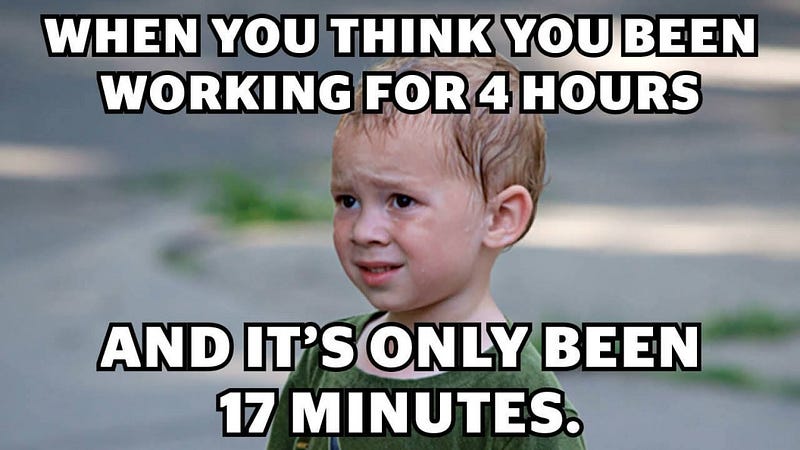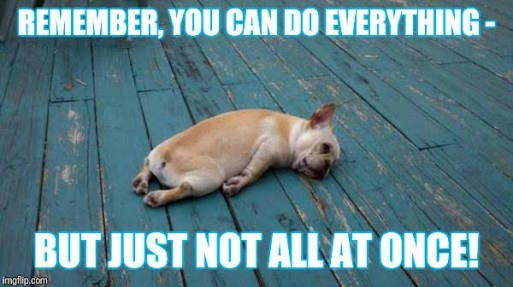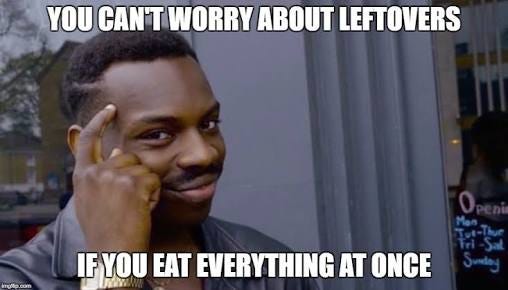
One of the most dangerous and common tips for learning to code is to «just do projects.»
Projects can be a great way to learn to code, but people often attempt them too early, get discouraged, and quit.
Why You’ve to Stay on Low-key first .
Code learners will often say things like «I’ll just code up a quick event page builder,» or «I’ll make a simple social network app.»
That’s great, it’s a perfect idea

But wait, these statements usually lead to one of two scenarios:
- The project is way too hard, and the person gets discouraged.
- They stumble through and complete the project, but since it required so much new information at one time, they can never remember it or apply it again.

Both scenarios lead to a nasty psychological effect where a learner will think, «If I can’t even do this easy thing, maybe I’m not cut out for coding.»
One Way to Get Better Apart from Rushing into Projects
- Share what you learn. You get better at what you do when you help other people understand it because it forces you to understand it well yourself before you can help others do it.
- Break down other people’s code, and break it. You’ll be surprised at how much insight and lessons you can learn from doing this.
- Start something today, and don’t wait till you’ve mastered all skills before you start. It must not even be a little code project, you can start by organizing tech meet-up around you.
- Be persistent, and don’t let yourself get overwhelmed. Only learn the stuff that you need, when you need it.
Projects Right?
While thinking of getting into projects to quick and yet still learning on the basics, I strongly advise you learn at freeCodeCamp while they provide the best project ideas that will fire you up.

Write Code Everyday
John Resig wrote an article earlier 2014 titled “Write Code Everyday” After he was inspired by Jennifer Dewalt.
A woman who taught herself programming by building 180 web sites in 180 days. John Wrote “I felt compelled to try a similar tactic: working on my side projects every single day”. Which made him to set some certain rules for him self.
His Rules
- I must write code every day. I can write docs, or blog posts, or other things but it must be in addition to the code that I write.
- It must be useful code. No tweaking indentation, no code re-formatting, and if at all possible no refactoring. (All these things are permitted, but not as the exclusive work of the day.)
- All code must be written before midnight.
- The code must be Open Source and up on Github.
You can read the full Article Here. Is Recommended
Learn to Stand Alone
One of My Teacher once told me, “If You Can not Stand Alone, You Can not Stand at All”.

For instance, a newbie ask:
«What should I learn if I want to make a website/app/startup?»
You’ll see variations of this question all over the internet.
Each time, the same pattern ensues.
Everyone will jump in with a well-intentioned list of things the asker should learn. Since each person named the three to five things relevant to themselves, the overall result might turn into a list of 40+ things to learn.
This is overwhelming, and it can discourage people from learning tech skills.
Avoid Moving slower by rushing
Rushing is the quickest way to slow down your progress.
It’s ironic, but it’s true.

When learning to code, it’s natural to encounter a concept, understand it, and move onto the next thing. On the surface, that sounds like a normal progression, but it’s actually a problem.
Why?
By moving onto the next thing immediately after understanding a concept, you haven’t given yourself time to practice that concept and retain it. As a result, you’ll feel like you’re making progress, but you’ll soon realize you’ve forgotten everything. When you can’t remember what you learned at the beginning, all the later steps become impossible. You then have to skip back and forth trying to move forwards and play catch-up at the same time. You start to feel like coding is impossible, and then you give up.
This has happened to too many people, but it doesn’t need to happen to you.
The key is this: when you understand something, don’t immediately move on to the next thing. Take some time to play with what you just learned. Build something neat. Try a variation. See if you can type it without looking at any examples.
At first, this approach will seem to take longer, but it will save you a ton of time as the later stages become much easier.
Don’t get tired
I don’t know if this has happened to any of you.

This is one thing that usually gets people tired or lazy writing code most time. When you encounter a bug in a code you’ve been writing a while and started debugging it and instantly you feel like wow, I’ve done a pretty good hard work and I need to take a break. ???? Mehn it’s just 17 minutes, fainted?? .
You’ll feel like you’ve been doing nothing. This has happened to me. But you don’t have to get tired, it’s a sign you still have a lot of work.
Doing everything at once
The people who end up good with tech are not afraid to be bad with tech.

That’s because tech requires a lot of learning, which means frequently feeling like a beginner. While this might sound daunting, it can actually be reassuring. If you find yourself feeling like a beginner, that means you’re learning things, and therefore you’re on the right track.

However, if you find that you’re good at most of the things you do, maybe it’s time to step out of your comfort zone and learn new things.
Convincing yourself you don’t have enough time
If you have time to read this, you have more than enough time to learn tech skills.
The reason it seems hard to find time is that people treat learning like it’s a big thing that requires hours at a time. However, when it comes to other activities, such as reading articles or browsing social media, we tell ourselves, «I’ll just check this one thing quickly.» That one quick check turns into 3 hours of reading.

The truth is that you can learn to code in 20 minutes a day. The easiest way to find time is to treat it the same way you treat other activities. Tell yourself you’ll learn for just one minute. That tiny commitment makes it much easier to start, and starting can be the hardest part. If you do this, you’ll have a much easier time fitting learning into your schedule.
I guess this will end my talk. And We all need people who will give us feedback. That’s how we improve.
Follow on me on Twitter
Thanks